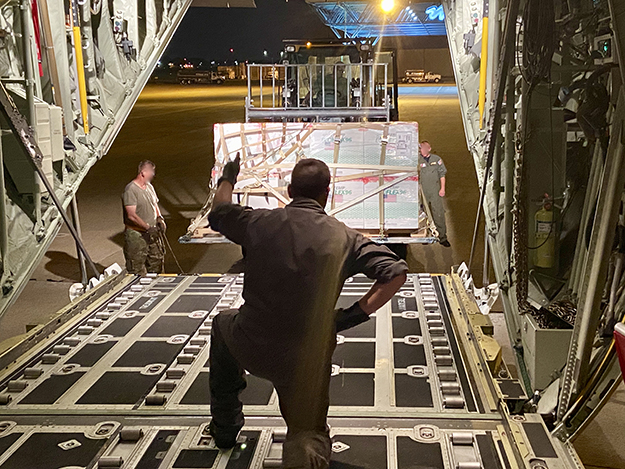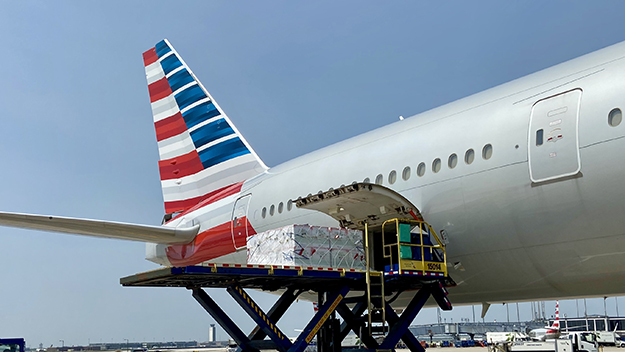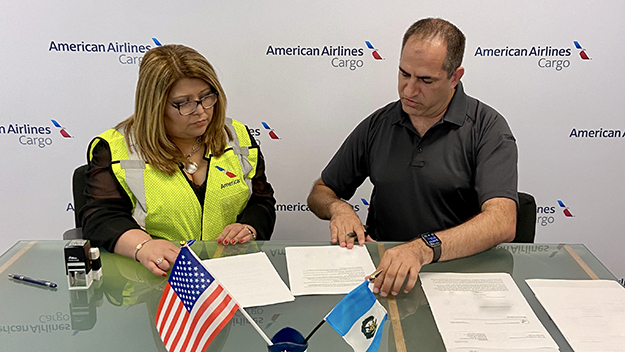More than 70% of adults in the United States have received at least one shot of COVID-19 vaccine, and BARDA has purchased enough doses of COVID-19 vaccines to cover everyone in the United States. At the same time, federal health officials recognize that the pandemic is a global struggle and the SARS-CoV-2 virus doesn’t stop at any of our national borders.
To stop the spread of COVID-19 in the U.S. and decrease the chances of new, even more dangerous, variants emerging, we must help prevent the spread of the pandemic worldwide. That is why, with ASPR’s coordination, the U.S. is taking the global lead in supporting countries in need of the pandemic vaccine. In fact, with ASPR’s help, the U.S. has donated over 107 million doses of vaccine to 65 countries. The U.S. has already surpassed the initial goal of donating 80 million doses. So far, ASPR has directly supported shipments of approximately 77 million of those donated doses to 26 countries.

ASPR’s efforts began several months ago with vaccine support to the Republic of Palau and India. We are continuing to support other countries’ requests as they are coordinated by the State Department and the White House. We recently caught up with two Public Health Service Officers, Commanders Avi Stein and Angela Hutson, who have been leading the coordination.
Commander Stein, the lead for the ground teams, talked to us about the challenges of each donation. “The biggest challenge during the bilateral agreement missions is coordinating the logistics. Each transfer has been unique, some with military aircrafts, some with commercial aircrafts, some with partners like FedEx and UPS supporting the movement. There is a great deal of logistics in assuring the support to the dignitaries arriving, coordinating aircraft handling on the ground, buildout of the pallets for commercial air transport, and coordinating with partner agencies. Each transfer has posed very unique challenges.”

He added that each individual donation is a significant effort. The donations require a contract modification, legal reviews, customs and exportation documents, identification of lots, cold chain assurance, current Good Manufacturing Practice (CGMP) documentation, security and assurance, physical transfer support, and tracking until shipments have landed in the destination country. ASPR works our part of this process expeditiously with our partners at the White House, the U.S. Department of State, foreign government officials, airport authorities, private sector medical supply distributors, and commercial haulers, to get the vaccines to where they need to be.
ASPR’s team of some 20 staff carefully orchestrate the logistics on the ground to:
- complete the transfer documents with the approved recipient of the foreign country;
- ensure the vaccines are properly transported via cold chain management from the distributor to the point of debarkation; and
- coordinate with airports to assure the ease of aircraft arrival, loading, and departure so that the vaccine transfers do not conflict with everyday operations.

For example, in arranging for donations of vaccine to Colombia, ASPR had to shift daytime arrangements to night-time operations to help maintain temperature control of the vaccine doses on both ends of the flight. ASPR personnel met the arriving aircraft and foreign dignitaries, arranged for distributor’s trucks filled with vaccines to leave the warehouse at a specific time and arrive at the airport at a specific time. The vaccine vials arrived at the airport on warehouse pallets in special boxes to maintain the necessary temperature for 120 hours – long enough to get the vaccine to Colombia. Airport handlers moved the vaccines from the truck to a specialized aircraft pallet which could be raised up to the plane’s cargo door to load the vaccines easily onto the plane.
Commander Hutson was on site at the Memphis airport for the transfer where she witnessed the country’s ambassador sign the title, transferring the ownership of vaccines the Colombian government, and a U.S. official signed the documentations relinquishing ownership of the vaccines.

Commander Stein discussed a different donation shipment, this time to Taiwan. The Ambassador of told the team that so few people in Taiwan had been vaccinated and this will make a huge difference. “Directly after the signing, she called the Taiwanese President who asked to speak to me. The President thanked me on behalf of the 15.2 million citizens of Taiwan.”
Commander Hutson added that McKesson staff – ASPR’s partner contractor – recently took another group of Colombian delegates on a tour of their facility and they got to see the -20°C freezers and watched the workers move the vaccines. “The Colombian delegation was so thankful for the impressive work that will be saving their fellow country men and women.”

There are two types of vaccine transfers occurring: direct donations from the U.S. to a foreign country through a bilateral agreement and vaccine donations from the U.S. through the COVID-19 Vaccines Global Access or COVAX initiative with the World Health Organization. To date, donations supported directly by ASPR have gone to Mexico, Canada, Taiwan, Brazil, Honduras, Pakistan, Bangladesh, Colombia, El Salvador, Vietnam, Guatemala, Indonesia, Bhutan, Fiji, Ukraine, Argentina, Sri Lanka, and Tajikistan, and we continue to work with the State Department and other federal officials to evaluate requests and expand U.S. donations.
Commander Hutson mentioned that the COVID-19 response experience has been both heartbreaking and rewarding. “We all worked so hard going into FEMA each day trying to resolve medical supply chain issues when resources were so scarce. I felt the burden of these victims of COVID-19. I also have a personal history with COVID-19. It tried to rob me of my parents and of my own health. My parents got sick in January before we could get vaccinated. I traveled home to Missouri to take care of them and after a week or so I also contracted COVID-19. As soon as we all had recovered and were eligible, we got the vaccines. It is such a great feeling knowing that we have a high level of protection now. This makes me want to do all that I can to help others have this same feeling of protection.”

By working with our partners across the U.S. government and beginning new relationships with our international partners, ASPR is playing a vital role in bringing critically needed doses of COVID-19 vaccines to people across the planet, ultimately helping save lives. By effectively using the vaccine that ASPR has worked with its partners to develop, manufacture, and safely transfer to our international partners, we are taking an important step to help mitigate – and even end – the global COVID-19 pandemic.
Commander Stein finally noted that the opportunity to impact individuals on a global level is the best part of this mission. “Most ASPR missions focus on supporting communities after a disaster. COVID gave us the opportunity to impact the entire country during the early days of the response. The Biden Administration’s push to donate vaccines across the globe has given us the unique privilege to impact the global community. I have worked with several ambassadors and foreign dignitaries during these transfers and many are overwhelmed at what each donation means for their country. Serving as the Senior U.S. Representative on each of these missions is one of the biggest honors of my career.”


